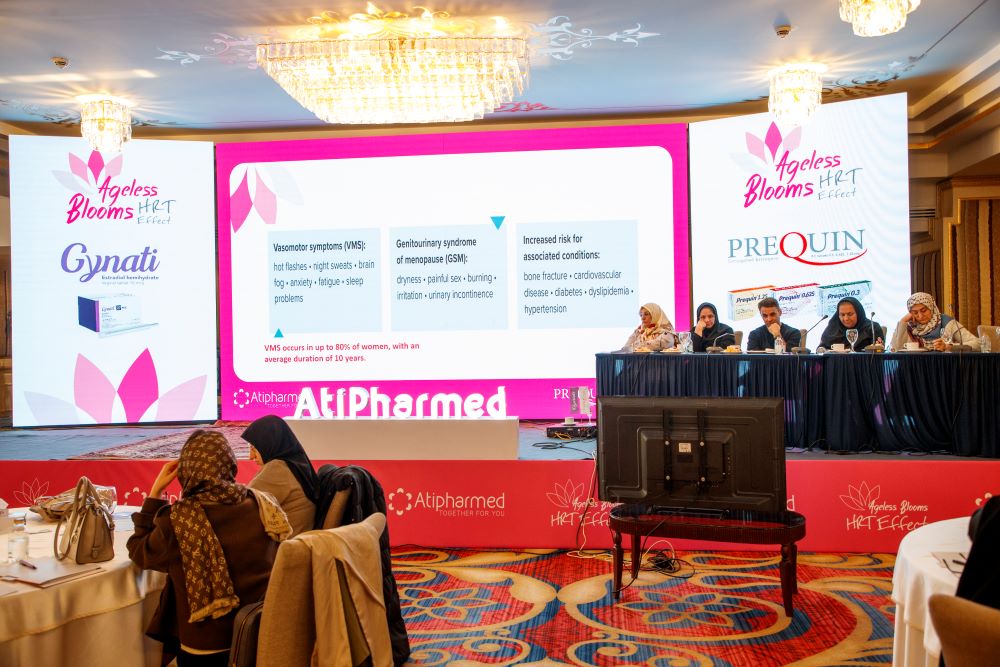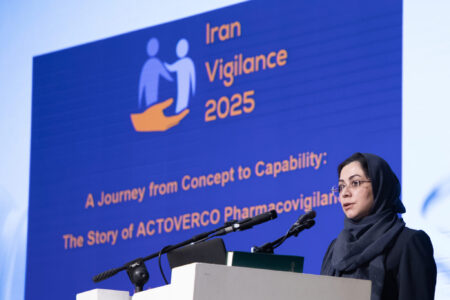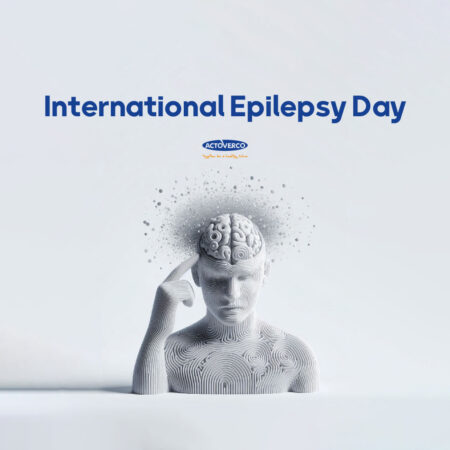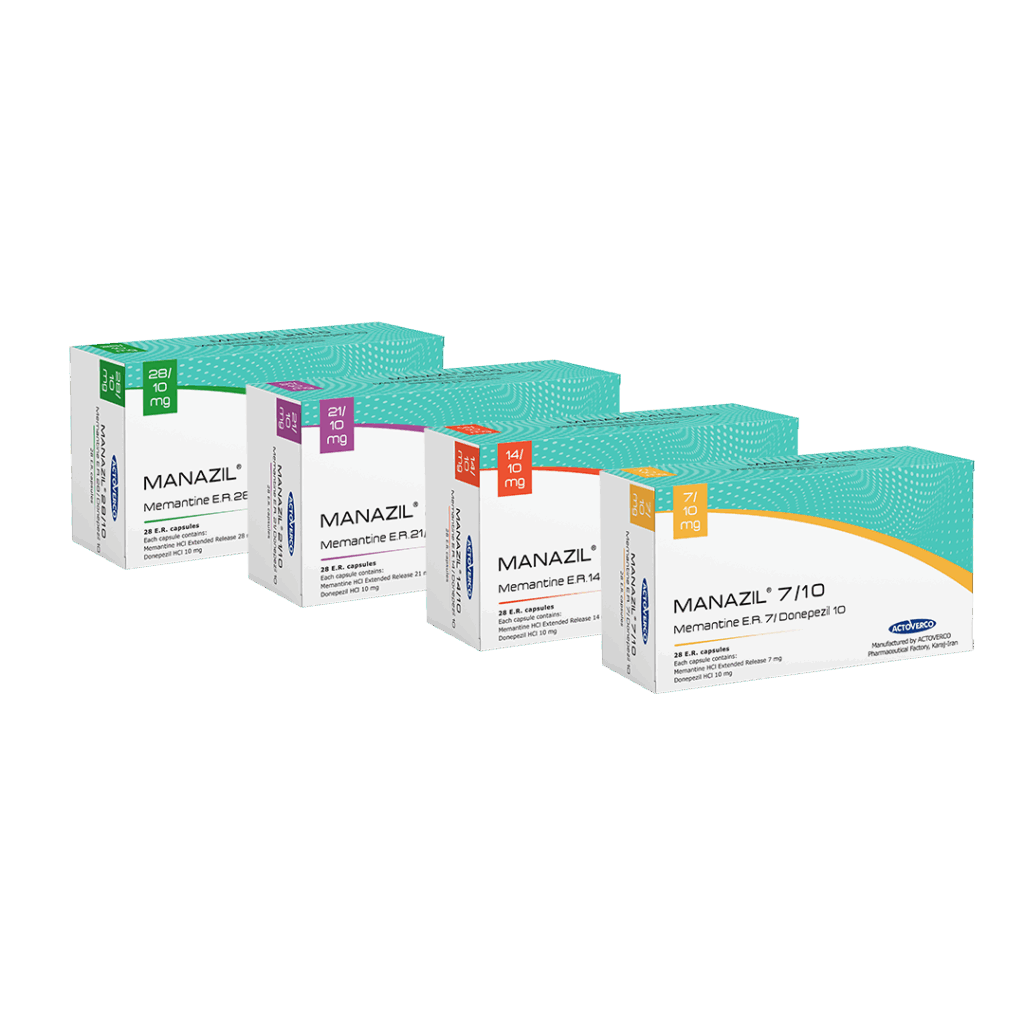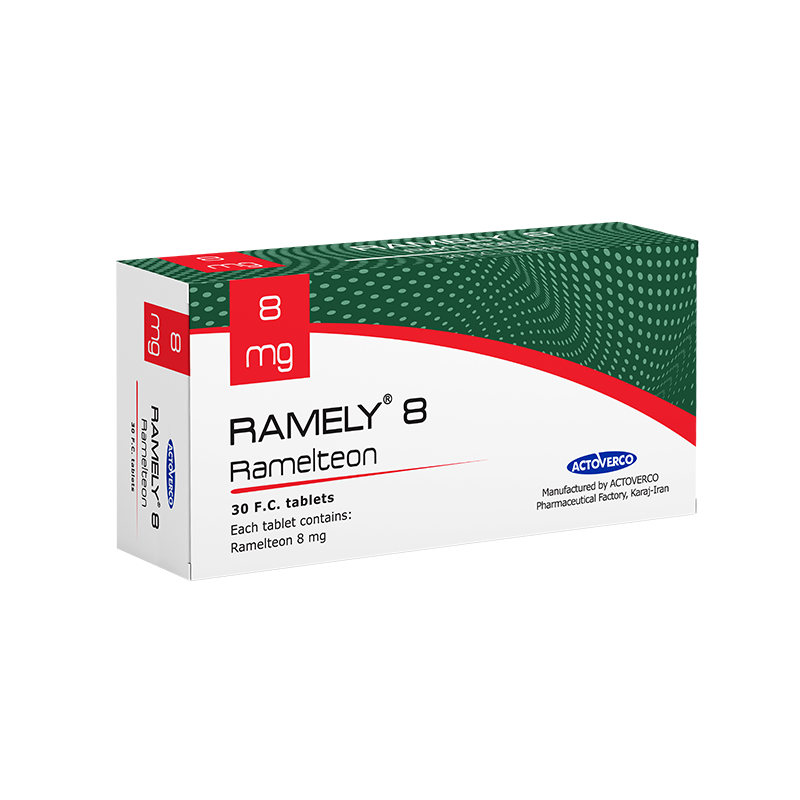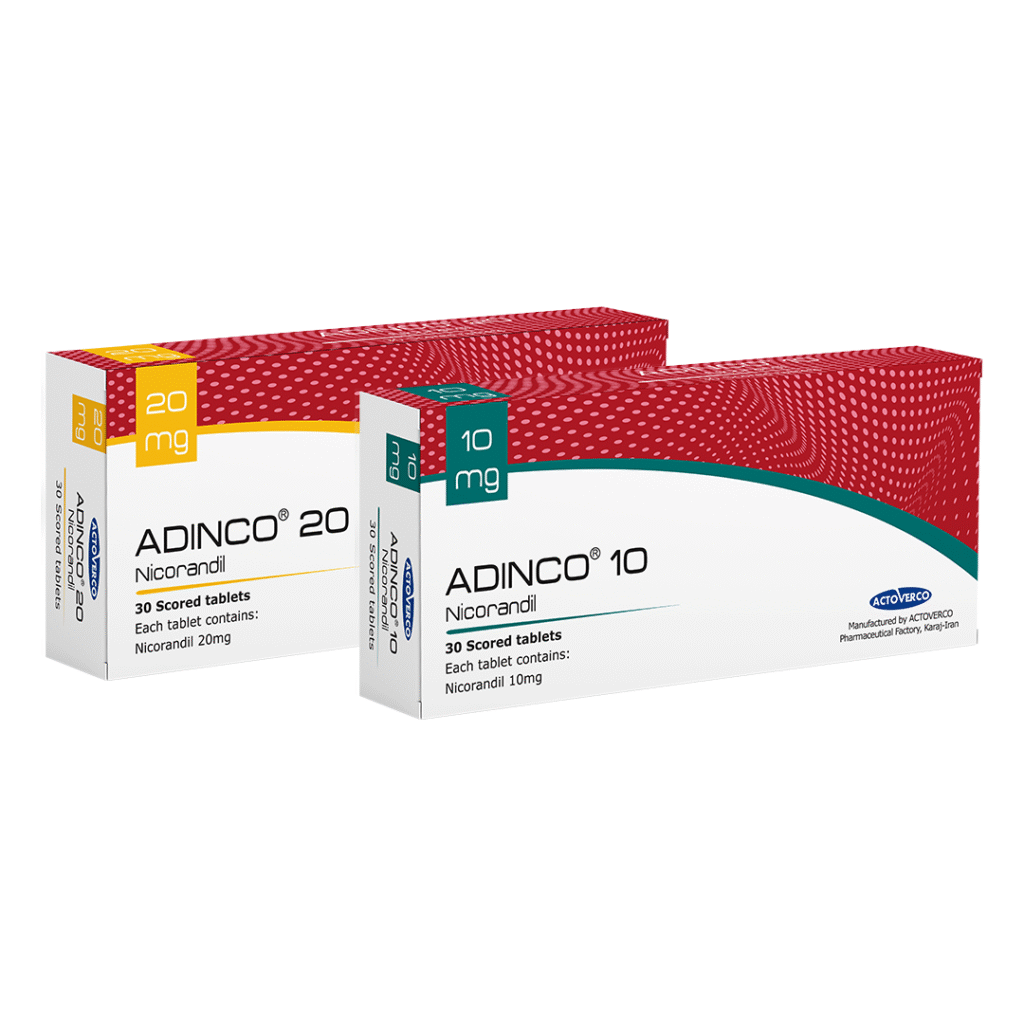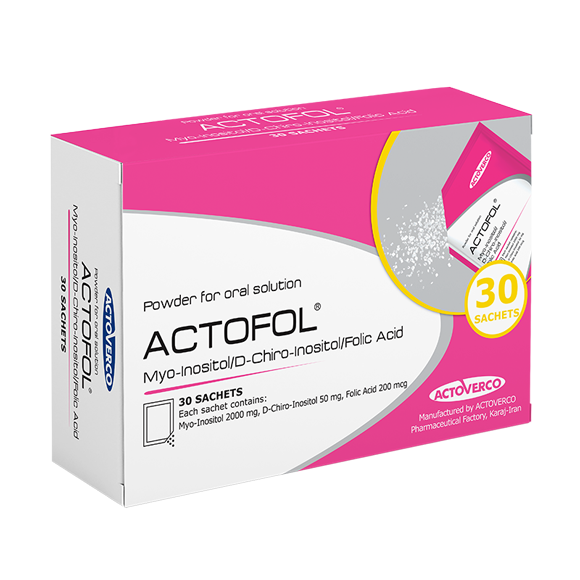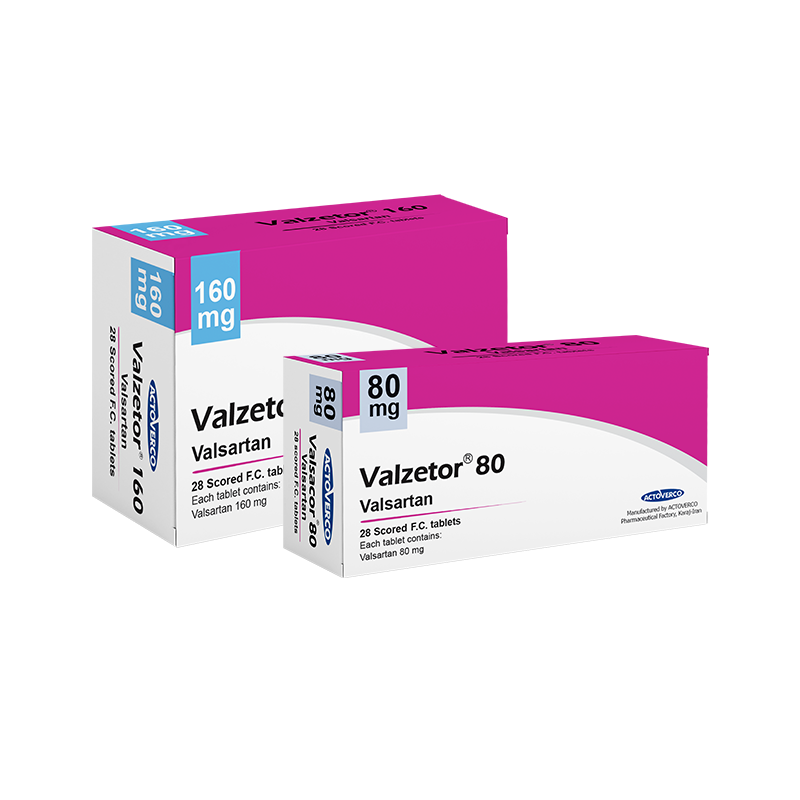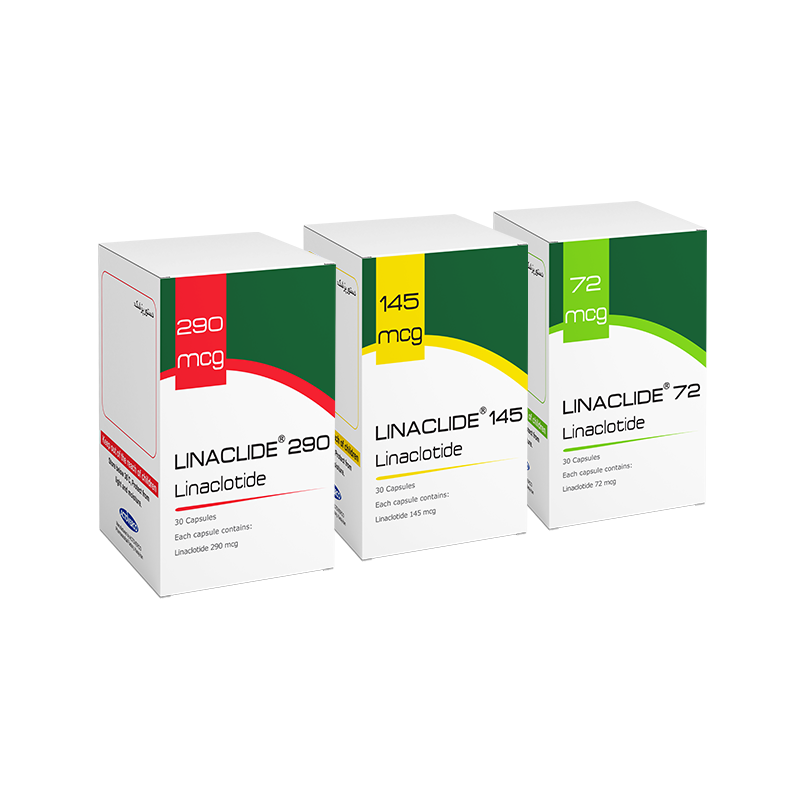According to the Public Relations Department of Ati Pharmed Pharmaceutical Group, this event, which was widely attended by gynecologists at the Espinas Palace Hotel, included two specialized panels with speeches by experts in gynecology, neurology, and dermatology. The effects and benefits of HRT during menopause and premature ovarian failure, breast diseases, neurological issues, and skin and hair problems in menopause were discussed.
Statements by Dr. Yaghmaei on the benefits of HRT in menopause and premature ovarian failure
At the beginning of this session, chaired by Dr. Saghar Salehpour, a professor at Shahid Beheshti University of Medical Sciences, Dr. Minoo Yaghmaei, a professor of obstetrics and gynecology at Shahid Beheshti University of Medical Sciences, discussed the benefits of HRT in menopause and premature ovarian failure.
She stated that women typically reach menopause between the ages of 40 and 58 (most commonly at the age of 51 or 52) and added: “Hormone replacement therapy (HRT) is one of the methods used to alleviate menopausal symptoms. In the past, this type of treatment was easily prescribed for all menopausal women. However, following the publication of some research indicating potential adverse effects of this method, it is now recommended that the use of HRT be limited to cases such as moderate to severe hot flashes, mood disorders, and depression accompanied by hot flashes, and to women under 60 years of age or those within 10 years of the onset of menopause.”
Statements by Dr. Hosseini on HRT in menopause and premature ovarian failure
Dr. Maryam Sadat Hosseini, a professor of obstetrics and gynecology and a gynecologic oncology fellow at Shahid Beheshti University of Medical Sciences, also addressed HRT in menopause and premature ovarian failure in her speech.
She noted that the use of HRT was suspended for several years following the publication of findings from the “Women’s Health Initiative” study in the early 2000s, which suggested a link between this method and cancer and cardiovascular diseases. She stated: “Considering the different outcomes of some later studies and the various reported benefits of HRT, the negative approach toward this method has gradually been adjusted, and most countries now develop guidelines in this field based on their specific conditions.”
Hosseini pointed out that such a guideline does not exist in our country and stated: “The likelihood of endometrial hyperplasia and endometrial cancer increases with estrogen therapy (HRT). However, the level of risk depends on the duration and dosage of hormone therapy. For instance, a study showed that the use of low doses of estrogen (0.3 mg of conjugated estrogens daily) for two years does not increase the incidence of endometrial hyperplasia, whereas higher doses (0.625 mg and 1.25 mg) are associated with higher rates of this condition (28% and 53%, respectively). Additionally, when a low dose (0.3 mg daily of conjugated equine estrogen) is administered for more than eight years, the risk of endometrial cancer increases ninefold. It appears that equivalent doses of transdermal and oral estrogen have similar effects on the endometrium.”
She added: “Studies have shown that the impact of HRT on increasing the risk of breast cancer is similar to other postmenopausal lifestyle-related risk factors, such as obesity and alcohol consumption.”
Regarding the association between hormone replacement therapy and the risk of ovarian cancer, Hosseini stated: “The impact of HRT on the likelihood of developing this cancer has been reported to be very low, even in the well-known Women’s Health Initiative study. Therefore, postmenopausal women who benefit from HRT should not be deprived of this treatment due to the fear of ovarian cancer. As for colorectal cancer, HRT not only does not increase the risk but even reduces the likelihood of developing this cancer.”
Hosseini concluded that overall, HRT does not significantly contribute to the development of cancer.
Statements by Dr. Nafisi on the relationship between HRT and breast diseases
The next speaker in the first session panel was Dr. Nahid Nafisi, an associate professor and breast surgery fellow at Iran University of Medical Sciences and the president of the Breast Surgeons Association, who discussed the relationship between HRT and breast diseases.
She highlighted the numerous symptoms and issues associated with menopause, including sexual dysfunction, which is a primary complaint for many women during this period. She stated: “It should not be forgotten that smoking, hookah use, and alcohol consumption—which, unfortunately, are increasingly prevalent among some women—pose a much higher risk of breast cancer than HRT. Notably, HRT with estrogen alone does not affect the incidence of this cancer. It is HRT with both estrogen and progesterone that slightly increases the risk of breast cancer. However, this effect disappears as soon as HRT is discontinued.”
She noted: “This was subsequently confirmed by the large-scale study and meta-analysis of the Women’s Health Initiative (WHI), which found that the use of HRT has no impact on the total number of cases, overall incidence of cancer, or breast cancer mortality rates. Therefore, in women without other serious risk factors, HRT should not be avoided in necessary cases out of fear of breast cancer.”
Nafisi went on to discuss the impact of HRT on benign breast changes, stating: “During menopause, the production of estrogen and progesterone in the ovaries ceases, leading to changes in breast tissue. Fibrocystic changes—such as the formation of lumps, pain, or tenderness in the breasts—are often hormone-driven, and the reduction in estrogen levels can alleviate or reduce some of these symptoms.”
In another part of her speech, Nafisi discussed the impact of “Gynati,” an HRT drug produced by Actoverco, on cancer risk, stating: “This drug is used vaginally, and according to studies, the small amount of estrogen absorbed through this method has significantly less impact on cancer risk compared to oral or systemic hormones.”
In conclusion, Nafisi addressed the possibility of using HRT after cancer, stating: “For alleviating menopausal symptoms in individuals who have had cancer, systemic HRT is not permissible. If, due to the severity of symptoms and the ineffectiveness of other methods, HRT becomes necessary for the patient, hormone replacement therapy should preferably be administered vaginally.”
Statements by Dr. Kasmaei on the positive effects of HRT for alleviating neurological symptoms of menopause
The second session panel, dedicated to examining the positive effects of HRT in alleviating neurological and dermatological symptoms of menopause, began with a speech by Dr. Hossein Delavar Kasmaei, a neurologist and faculty member at Shahid Beheshti University of Medical Sciences.
He emphasized that some neurological symptoms of menopause necessitate the use of HRT, stating: “Depression, mood disorders, and emotional problems are among the most common of these symptoms. Regarding certain diseases, such as Alzheimer’s—65% of cases of which occur in women—it has been suggested that the decline in hormones during menopause may play a role in the development of such conditions.”
Delavar stated that various studies conducted on this subject have sometimes yielded completely different results, explaining: “The WHIMS study, which examined the use of HRT in individuals at risk for Alzheimer’s, indicated that this method could increase the risk of developing Alzheimer’s. However, another study, titled MIRAGE, conducted on a younger population, showed that HRT might reduce the risk of Alzheimer’s in this group.”
He added: “There are also other studies suggesting that even in younger groups, HRT could increase the likelihood of developing Alzheimer’s. Nevertheless, the latest large-scale study on this topic, published in 2023, indicates a positive effect of HRT in preventing Alzheimer’s among younger individuals and those who have recently entered menopause.”
The faculty member of Shahid Beheshti University of Medical Sciences also noted that HRT is not intended to be prescribed for women who visit a doctor due to issues such as depression, sleep disorders, or similar conditions. It is only recommended for cases where the individual is facing serious problems, such as “brain fog.”
Statements by Dr. Mahmoudi on the benefits of HRT in reducing menopausal effects on skin and hair
Dr. Hamidreza Mahmoudi, a dermatologist and associate professor at Tehran University of Medical Sciences, addressed the benefits of HRT in reducing the effects of menopause on skin and hair during his speech.
He explained: “Given the presence of estrogen receptors in most skin cells, any change in the level of this hormone certainly affects the skin. Typically, few women use hormone replacement therapy specifically to address skin problems caused by menopause. However, those who have used this treatment for more serious menopausal complications have observed the positive effects of HRT, particularly estrogen, in reducing skin and hair problems, enhancing skin softness and firmness, and decreasing dryness. Additionally, HRT accelerates wound healing.”
Mahmoudi noted that, according to some studies, topical application of estrogen also has positive effects on the skin, stating: “This finding has led to the inclusion of plant-based steroids, such as resveratrol, in some cosmetic products to mitigate the effects of aging on the skin.”
He went on to mention hair changes during menopause, such as thinning and brittleness, saying: “Fortunately, hair loss in women can be significantly reduced with various treatments, the most effective of which is oral minoxidil at a dose of 1.25 to 2 mg. The issue of excessive hair growth or hirsutism, which nearly half of women face during menopause, also has effective treatments, such as laser therapy.”
Mahmoudi further highlighted that HRT is also effective in reducing acne and the exacerbation of psoriasis, which often worsens after menopause.
Statements by Dr. Dehnad and the introduction of Gynati and Prequin medications by Ati Pharmed Company
The final speaker of this session, Dr. Shahrzad Dehnad, Medical Advisor for the Women’s Health Line at Ati Pharmed Pharmaceutical Company—part of the Actover Group—introduced the company’s products Gynati and Prequin.
She highlighted that 25 million women worldwide enter menopause annually, stating: “In half of the female population, sexual life is affected by menopausal symptoms. Forty-five percent of postmenopausal women in the U.S. report negative impacts of these symptoms on their work, and 33 percent complain about their adverse effects on social standing. Moreover, 32 percent of postmenopausal women feel they are no longer good companions.”
Dehnad noted: “Despite the profound impact of menopause on women’s lives, unfortunately, more than half of women are unaware of menopausal symptoms, and 40 percent do not seek medical advice. This is while, for hot flashes—which occur in 80 percent of menopausal women—half of those experiencing moderate to severe cases require therapeutic intervention.”
She added that hot flashes, one of the most common vasomotor symptoms of menopause, can sometimes persist for up to 20 years if not effectively treated.
Dehnad stated that hormone therapy is the first-line treatment for vasomotor symptoms of menopause, such as hot flashes and night sweats. She remarked: “HRT is the most effective and, at the same time, the simplest hormonal treatment for menopausal symptoms. To improve access for Iranian women to necessary HRT medications, the Actover Group has produced Prequin oral tablets containing conjugated estrogens in three doses—0.3, 0.625, and 1.25 mg—and Gynati vaginal tablets containing 10 micrograms of estradiol, a hormone from the estrogen group.”
She emphasized: “Treatment with Prequin tablets should start with the lowest dose (0.3 mg), a dosage that was not previously available in Iran and has now been produced for the first time by Ati Pharmed. According to reliable guidelines, this medication is effective in preventing osteoporosis, which occurs in women with progesterone deficiency. It is also used in the treatment of primary ovarian insufficiency (POI).”
Dehnad also discussed the indications for the use of Gynati vaginal tablets, stating: “According to the latest guideline updates, the first-line hormonal treatment for genitourinary syndrome of menopause (GSM) is low-dose vaginal estrogen. For this purpose, Gynati vaginal tablets, containing the lowest hormonal dose available in the pharmaceutical market of Iran and the world, can be used.”
The specialized session on the effects of HRT concluded with the presentation and discussion of several cases involving gynecological conditions.

